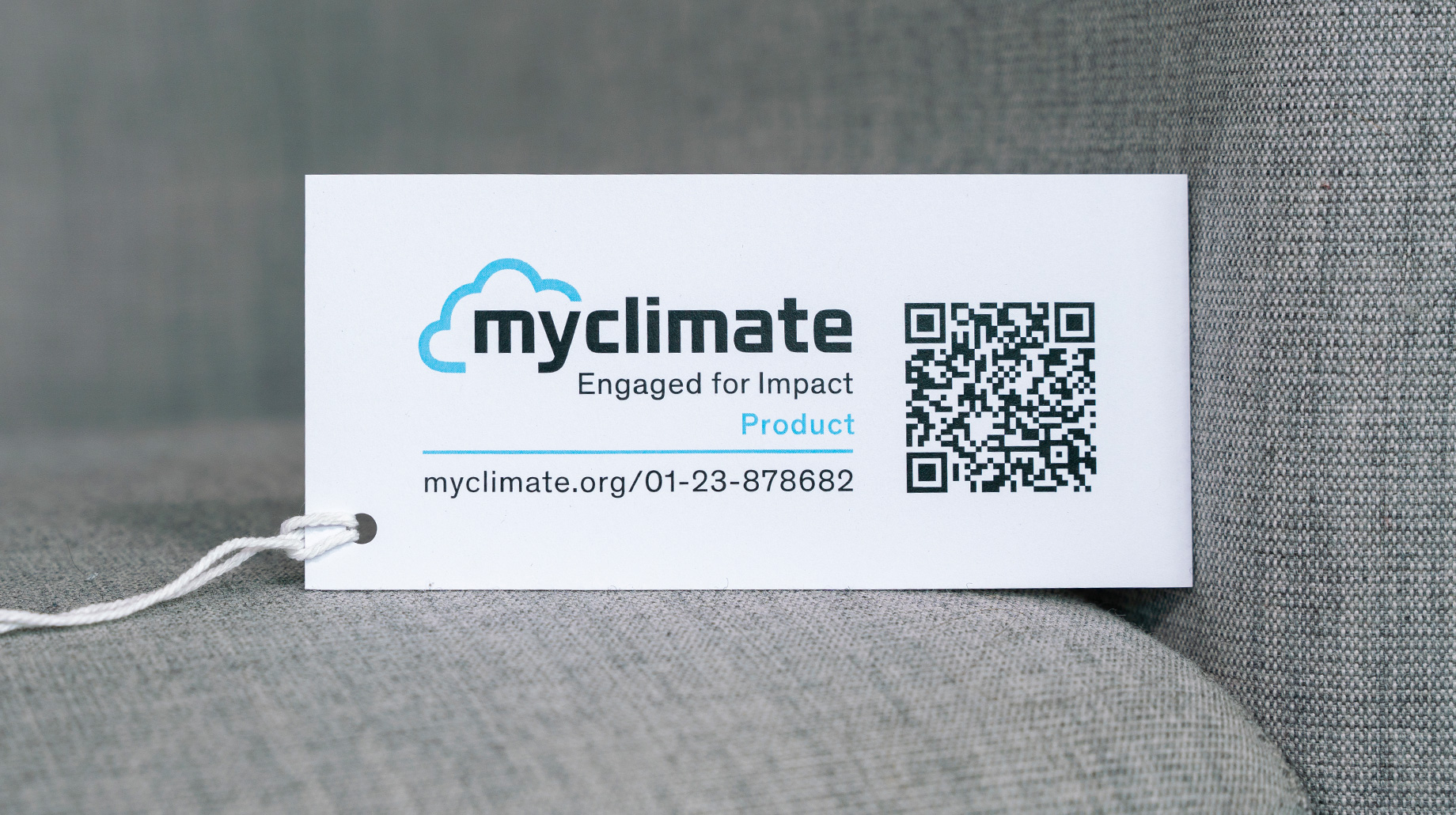Last modification
What is the myclimate impact label?
To help companies to communicate their important financial commitment to climate protection transparently and with integrity, myclimate has developed the impact label “Engaged for Impact” – also known as the “impact label”. This makes us the first climate protection organisation to adapt to the new political framework conditions in accordance with the Paris Agreement. This provides companies with a market-orientated incentive to engage in climate protection and to highlight products and activities accordingly, while private individuals, in turn, receive independent, transparent and visible support in making climate-conscious purchasing decisions. myclimate thus contributes to ensuring that there continues to be an incentive for the private sector to protect the climate by taking personal and corporate responsibility for its emissions while also enabling emissions reductions that go beyond this.
Who can obtain the new myclimate label “Engaged for Impact”?
The label is awarded to companies or organisations that provide financial support for climate protection projects to the extent that matches their carbon footprint, as verified by myclimate. These projects save as many emissions or remove and store as many emissions from the atmosphere as currently generated by the company, event or product. The impact label thus indicates that the greenhouse gas emissions of an activity have been accounted for and that the company assumes responsibility for these emissions by providing a financial climate protection contribution. In this way, companies make an essential contribution to climate protection. In addition to avoiding and reducing the company’s own emissions, this voluntary financing of climate protection is an important component of a net-zero climate strategy.
What is changing concerning myclimate climate protection projects?
It is not the climate protection projects themselves that are changing, but the framework for how climate protection projects can be credited. These are the same high-quality projects that contribute to the global 1.5°C target. They reduce or absorb CO2 emissions and demonstrably make a positive contribution to sustainable development locally and regionally (see also Sustainable Development Goals, SDGs, of the United Nations). With the myclimate impact label, companies can make a high-profile contribution to achieving the global climate goal. What’s more, they can use it to communicate that they are providing a portion of the urgently needed financial contributions, and a portion that corresponds to their own emissions.
What is the difference between the impact label and the climate-neutral label?
For the impact label, as for the climate-neutral label, a carbon footprint is produced and verified by myclimate experts, which determines the scope of the CO2 emissions caused. The calculation principle and the system limits are the same for both labels.
If a company bears the impact label, this means that it finances emissions reductions through external climate protection projects in proportion to its own emissions. The company does not offset emissions, but finances climate protection in the host country and takes responsibility for its own emissions. It cannot call itself “climate-neutral”, but it can communicate the contribution it is making to achieving the global climate goals and the effect this is having through the projects (the impact) – in other words, the financial commitment it is making to fighting the climate crisis and the effect this commitment is having.
The CO2 certificates retired with the impact label are credited to the climate goals of the country hosting the relevant climate protection project. Hence, with the impact label, myclimate customers are supporting the host country in achieving climate goals, or “donating” the emissions reductions to this country. This serves to make an important (financial) contribution to global climate protection, because many countries do not have sufficient financial resources to achieve their climate goals on their own.
What will the future of climate neutrality and the climate-neutral label look like?
In the era of the Paris Agreement, the climate-neutral label can only be awarded with Corresponding Adjustments (CAs). However, since there are no CAs yet and it is unclear when enough CAs will be issued, myclimate will no longer offer the climate-neutral label for new partnerships.
Further info:
News on the launch of the Impact Label from 16 December 2022.
You can find further exciting information on the subject of climate change and climate protection in our climate booklet

